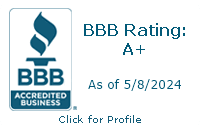COVID-19 is affecting our neighbors, and the agencies serving our neighbors. How can you help those in need?

I've written many articles – typically in December – sharing my experiences with preparing and serving breakfast every Friday morning at Greensboro Urban Ministry (GUM) with friends from my congregation, First Lutheran, from other faith communities, and from businesses or organizations wanting to lend a hand.
It's not December, so why am I writing about Friday Breakfast and GUM now? Because, like so many other things, both have been impacted by COVID-19, and both have adapted to address changed needs.
Friday Breakfast – Adapting 14 Years of Routines To Changed Circumstances
The Friday Breakfast team launched on Friday, April 7, 2006, and we've shown up every Friday since then, except when weather made the roads unsafe. Over the years, we've developed our routines and rituals, and had things down to a science! About 18 volunteers prepare and serve a hearty hot breakfast for about 140 guests, and make and distribute 80 lunch bags. During 2019, our 140 weekly guests split roughly evenly between those who spent the night at GUM and those who slept elsewhere and showed up for breakfast.
In mid-March, the coronavirus began spreading quickly, leading to concerns about the health and safety of the guests, volunteers (most of the Friday Breakfast crew is over 70), and staff of GUM. GUM staff outlined necessary changes, which we implemented on March 20, 2020. In brief:
- Our usual hot breakfast and bag lunches – sidelined. Now, we would be helping GUM staff finish and serve a simple breakfast – two hard-boiled eggs, a box of cereal, and a small carton of milk.
- In place of our 18 energetic volunteers, we scaled back to 7 volunteers so that, with 3 GUM staff, we would have no more than 10 persons in the kitchen area at one time.
- Over half the tables in the dining were removed and the remainder reconfigured to have a maximum capacity of about 30.
- The schedule moved from a single seating (7:00 to 7:30) to two seatings (6:45 to 7:05, and 7:10 to 7:30).
- Only overnight guests would be served in the dining room.
- Outside guests would be given a bagged or boxed breakfast to take and eat elsewhere.

Our group's 14th anniversary, April 3, felt incredibly odd because things had been turned upside down over the past month. Still, we did mark the moment with our crew that day and wished our other crew members could have been there.
We continued assisting the GUM staff in April and May, yet missed preparing a hot breakfast ourselves. So, we analyzed what tasks took the most time, then either eliminated them or developed workarounds, so that 7 people could do the needed work. We began our "Fast Prep Hot Breakfast" on June 12, 2020, and have served about 65 breakfasts each week, with about 25 plates for overnight guests at GUM, and about 40 boxed breakfasts for outside folks.
Based on the changes I'd seen and experienced on Friday mornings, I was curious about other changes GUM was making in response to community needs. Thus, I spoke with the following GUM staff about this:
- Tyra Clymer, Director of Emergency Assistance
- Darrell Campbell, Director of Potter's House Community Kitchen
- Chip Berry, Director of Development
- Mark Sumerford, Assistant Executive Director
Here's what I learned.
GUM – Reducing Census at the Shelters
GUM has deliberately reduced its shelter census to implement social distancing, and thus keep clients, staff, and volunteers safe. Census reduction has occurred at both of GUM's shelters:
- Weaver House – This is the shelter for single adults. The census is down from 100 to 35 currently, with the goal being high 20's to low 30's.
- Pathways – This is the shelter for families. The census is down from 16 families to 12 at present, with a target of 8 families.
The census reduction is occurring because of several factors:
- GUM has received grant money from an anonymous donor, through the Community Foundation of Greater Greensboro (CFGG) to put people into hotels, until a final destination (apartment, boarding house, the home of a family or friend, or shelter) is determined. About 15 people are currently housed in a hotel, and about 50 total people have been placed in hotels through these funds.
- The City of Greensboro, in connection with the Interactive Resource Center (IRC – the Day Shelter), has implemented a program to temporarily house persons in hotels.
- Guilford County has also implemented a program to temporarily house persons in hotels.
- Persons who were in the shelter due to a falling out with family have reconciled with family members and are now staying with family.
Remember, GUM staff always work to keep people out of the shelters by either preventing people from becoming homeless by providing emergency assistance funds for housing, or diverting people away from its shelters by attempting to temporarily house them with family or friends.
GUM – Addressing Changed Emergency Assistance Needs
Emergency Assistance (EA) at GUM has 3 components:
- Grocery
- Housing
- Utilities
For GUM, Grocery EA has actually gone down during COVID-19, due to our community's MANY generous food-related responses:
- When it appeared likely schools would shut down, Guilford County Schools developed a plan to have cafeteria workers continue to make the meals they normally would, and then find ways to deliver these to students.
- The temporary expansion of SNAP (Supplemental Nutrition Assistance Program, formerly known as food stamps) benefits from the federal government helped many people avoid food insecurity – however, this expansion ended in late June.
- Organizations and faith communities have stepped up their efforts to provide one or more of the following:
- Food assistance directly to those in need, through their own efforts and outreach.
- In lieu of preparing and serving a meal at GUM, providing money to GUM to help fund the meals staff are now preparing or purchasing.
- Donating to GUM for grocery assistance.
- The CARES Act and the United Way of Greater Greensboro, in connection with the City of Greensboro and CFGG, have provided additional funds to GUM and other agencies to help provide food and groceries.
- When United HealthCare (UHC) had their 2,000 Greensboro employees begin working from home, UHC kept its cafeteria open 5 days a week for 8 weeks, and prepared lunches to send to various agencies. GUM's share of these was 18,000 meals! These donated meals allowed GUM to continue serving meals without the help of volunteers – many of whom are over 65 – and without using their own funds for food.
With these other entities providing meals, there has been less need for Grocery EA.
The GUM Board and staff anticipate Housing and Utilities will soon be the greatest EA need. Protections under various federal, state, and local programs have prevented evictions and utility cutoffs, helping keep people in their homes – however, these protections will end soon, unless extended.
To respond to anticipated needs, the GUM Board has increased the EA budget for Housing and Utilities from $200,000 to $550,000.
- Duke Energy has been patient with past due bills for electricity and natural gas service.
- Water companies have not been as patient, as most are run by cities facing declining revenues and higher expenses caused by COVID-19.
Housing EA currently assists about 60 households per month, while Utilities EA assists around 1,000 households annually with utility bills.
While food assistance is GUM's most visible EA program, EA for housing and utilities help keep persons in their homes and out of the shelters.
GUM – Seeing a Different Clientele for Emergency Assistance
Prior to COVID-19, most EA clients were persons earning at or just above the poverty level for Guilford County. Thus, most were very familiar with how to access assistance through GUM.
Since COVID-19 began, there are many EA clients being seen for the first time. These are people who were earning more than a typical EA client and – in normal times – would not have been a GUM client. These people now need GUM assistance for the first time ever, and they did not know what assistance GUM could provide or how to access it.
- If you are aware of a family member, friend, or work colleague struggling to make ends meet, please refer them to GUM's Current Program Changes & Needs page.
During the last 5 months, over 2,000 households have used GUM's EA programs for the first time.
Ways You Can Help
I've written about GUM because it is the agency I know best – still, there are other agencies working to help people in need. What can you do?
- Learn How to Refer Persons in Need to Appropriate Resources – At the end of the last section, I provided the link to a page on the GUM site you can share with a family member, friend, or colleague in need. For other agencies, if you know an agency does provide some forms of help, yet cannot find an appropriate page with updated information:
- Search the site using keywords such as "Changes," "Updates," "FAQs," "COVID-19," or "Coronavirus."
- Review blog posts starting in February 2020.
- Call the agency's main number, ask for Emergency Assistance, and find out how to make a referral.
- Support Your Faith Community in Its Efforts to Help Those in Need – Pastors, priests, rabbis, imams, and other leaders and staff of congregations generally know about needs in the congregation and in the area around the facility. Your congregation likely has funds like:
- Member Assistance Fund – This money helps people in the congregation.
- Community Assistance Fund – This money helps people outside the congregation.
- Help GUM and Other Agencies – Check their web sites for ways to:
- Donate food or money
- Organize a food drive
- Volunteer to help, either as an individual or as a group
- Provide other support
- Prod Congress to Act – The economic impact of COVID-19 will be felt for quite a while, and the federal government is the only entity with the reach and scale to help millions of people. Let your Representative and Senators know your priorities.
- Consider Ways to Put Your Values Into Action – Here are special COVID-19 resources from two ecumenical organizations focused on advocacy for food, housing, and other basic needs:
Be The One Who Helps
In answer to the question "Who is my neighbor?" Jesus told the Parable of the Good Samaritan (Luke 10: 25-37). In that story, there is only one person who truly knows the meaning of neighbor – the Samaritan who helped the person in need. "Go and do likewise."
Sincerely,

Todd L. Herman






